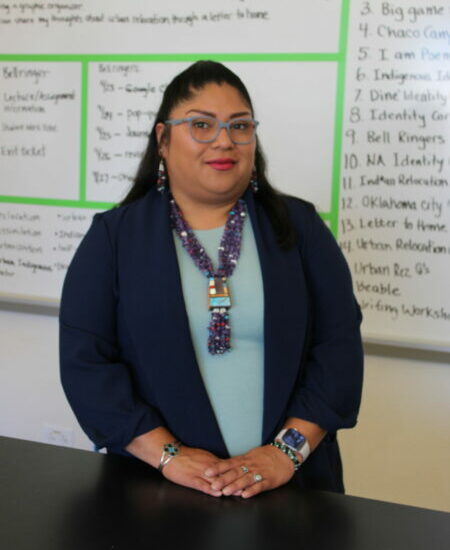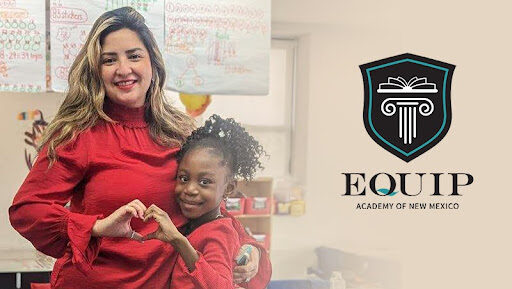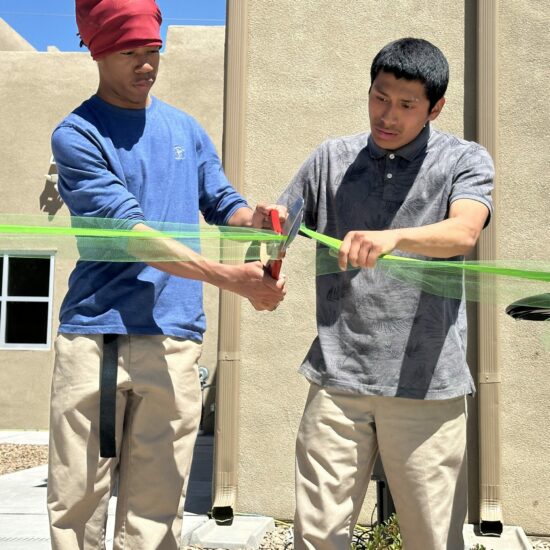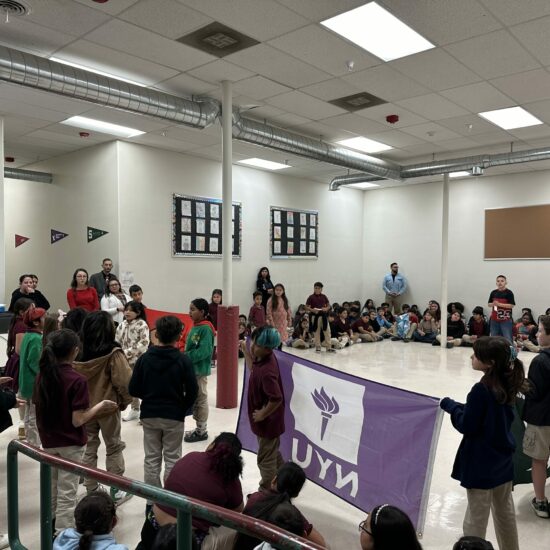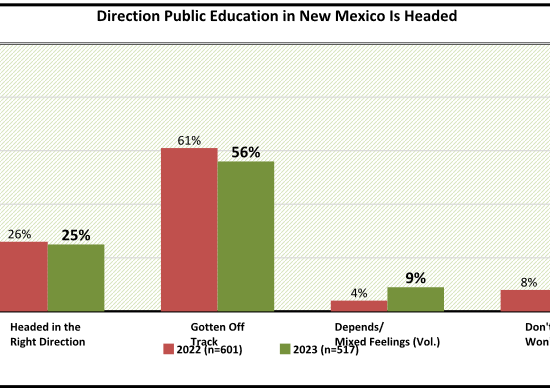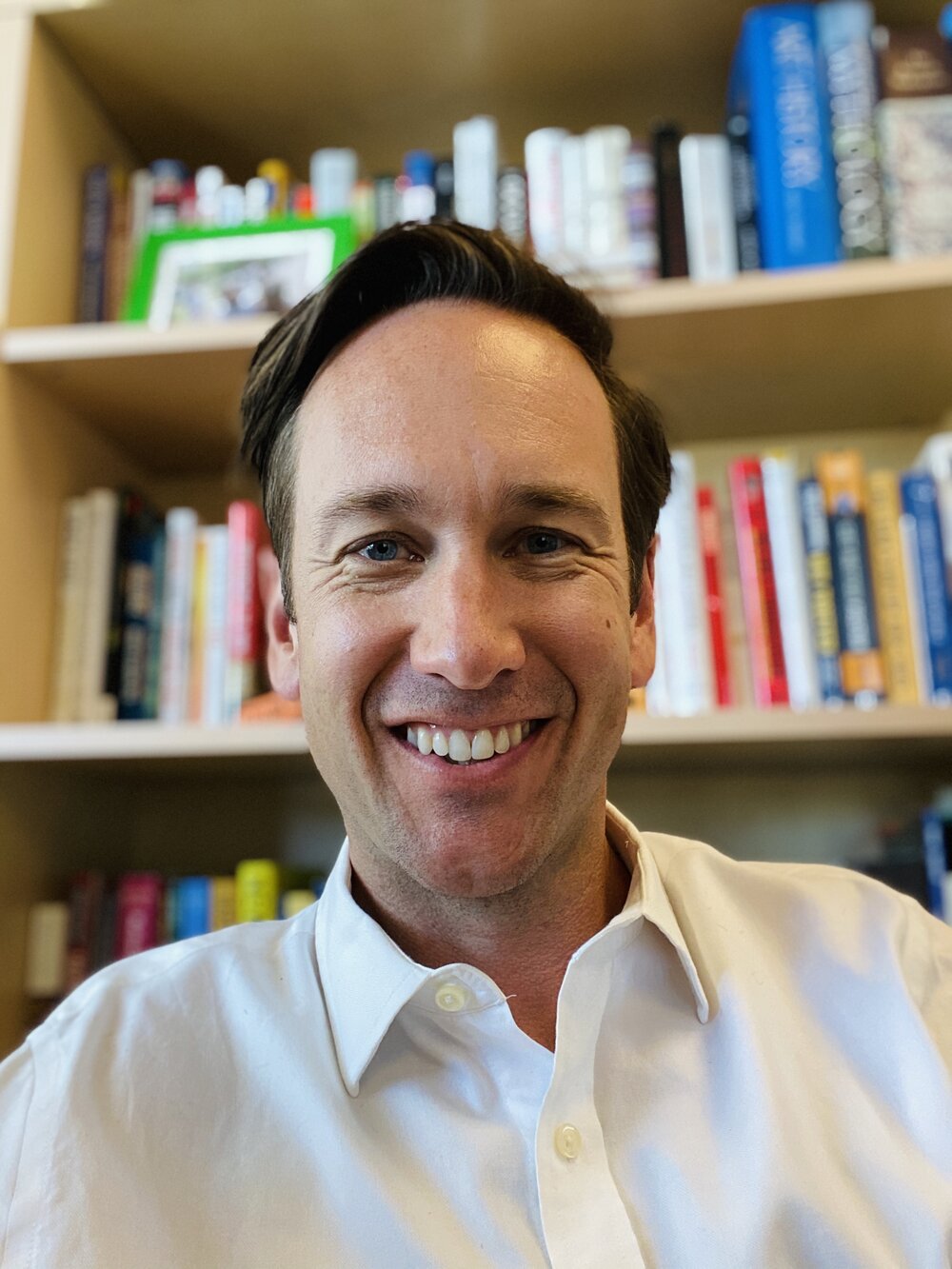
When the Covid-19 pandemic lingered through the fall of 2020 and public schools across New Mexico remained closed, Chris Eide Azevedo, head administrator at Santa Fe’s Turquoise Trail Charter School found himself inundated with questions and concerns from his school community.
“During the shutdown, communicating was a struggle,” Eide Azevedo said recently. “I had a deep fear of getting caught in a game of telephone from which we’d never recover. Information from the state was sparse, and that was challenging as well.”
So rather than dispensing limited information in an endless series of one-on-one conversations, Eide Azevedo decided to take a very pandemic-era approach: He started a podcast.
“The Hypothesis” launched on September 29, 2020. Eide Azevedo produced 20 episodes, concluding last December 14. Most of the episodes ran for 10-15 minutes, and only one topped the 30-minute mark. They’re well worth a listen, for the historical record among other reasons.
In the introduction to each episode, Eide Azevedo describes the podcast’s theme as “what it’s like behind closed doors, making decisions about whether or not to open up school in the middle of a global pandemic.”
Initially, Eide Azevedo’s target audience was the Turquoise Trail community. But as word spread, he gained listeners from across New Mexico and, eventually, the country. ‘The Hypothesis’ provides a fascinating, at times granular look at one school’s struggles to cope with the multitude of challenges poised by Covid-19.
“I thought producing a podcast would be more compelling for the community than sending out emails or memos telling everyone ‘here is what’s happening,’” Eide Azevedo said. It also provided an opportunity to explain to the community in detail how much thought had to go into every logistical decision.
One 12-minute episode, “The Math of a Classroom,” provides a sterling example. It focuses on what goes into configuring a classroom to prevent the spread of Covid. “It’s not as simple as just doing the square footage measurement of a classroom and creating six-foot circles and letting that be the guide how many students can fit in a room. No it’s actually much more complex if your goal is truly to keep kids safe,” Eide Azevedo says early in the episode.
To fit 16 students in a classroom with six feet of separation, all furniture other than individual student desks – including bookshelves – would have to be removed. But it gets even more layered from there.
Danielle Garcia, the school’s director of operations, explains in the episode that it isn’t just how kids fit in the classroom. It’s also how they move around the classroom, and the interactions they have with teachers and other students. These considerations are especially complex with the youngest students.
In that case, Eide Azevedo explained, perhaps only 10 kids can fit safely in a classroom. So what to do with a class of 16? Go hybrid? Use hallways as additional classrooms to accommodate more kids?
Parents don’t usually have access to this level of thoughtful conversation and decision-making within a school. The podcast proved to be a brilliant communication tool.
That Eide Azevedo came up with the concept isn’t surprising, given his lifelong passion for solving the puzzles of public education.
He started a cross-age tutoring program for middle school kids when he was in high school. He participated in seven different service learning projects in college. And when he graduated, he became an early Teach for America corps member in Houston, where he “fell in love with teaching and school.”
While in TFA, Eide Azevedo began pondering some of the deeper challenges that have long plagued public education. Why does demography so often seem to be destiny? Yet why, in some rare instances, do schools buck that trend, delivering stellar results while schools with similar student demographics struggle?
In Houston, those questions led him to the original KIPP charter middle school, where low-income students of color, so consistently ill-served by traditional public schools, seemed to be thriving. “I became obsessed with KIPP,” he said. “I took personal days to spend time there.”
After he finished his two years of TFA service, Eide Azevedo moved to Harlem to become a founding seventh-grade math teacher at a KIPP school there. Ultimately, he wanted to move home to Seattle to start a KIPP or KIPP-like school.
But charter schools were illegal in Washington at the time, so Eide Azevedo decided to dive into the murky waters of education policy and politics. He earned a master’s degree in education policy from Harvard University, then took a job at the University of Washington’s influential Center on Reinventing Public Education.
Eventually he migrated back to the classroom, and taught at a high-poverty school in Seattle. While teaching, he began recruiting teachers into an organization interested in promoting the professionalization of teaching. That eventually became a statewide advocacy group known as Teachers United, which, with a grant from the Bill & Melinda Gates Foundation, helped get charter school legislation passed in Washington.
Next, Eide Azevedo led movements of teachers in states across the country for better policies for young people from low-income families as National Director for Teach Plus. In 2017, that work brought him to New Mexico, where he became director of educator quality at Gov. Susana Martinez’s Public Education Department.
But it was always his goal to return to a school, and when the opportunity arose to assume the helm at Turquoise Trail, New Mexico’s longest standing charter school, he jumped at it.
“It’s just such a unique, amazing community,” Eide Azevedo said of the pre-K-8 school, founded in 1994. “It has evolved over time from this ragtag start-up on the dusty plains at the edge of town to a school that serves almost 10 percent of Santa Fe’s public school students.”
Turquoise Trail’s student body is racially, socioeconomically, and culturally diverse. Eide Azevedo said students range from the children of senators to kids who come out of local artist colonies to first-generation U.S. residents.
To help cope with the pandemic, Turquoise Trail launched a fully virtual school at the beginning of this school year. “The Academy of Extraordinary Circumstance” is serving 80 students in grades 5 through 8, with a group of “ninja teachers” leading the way. It’s likely to continue after this year, albeit in an even more efficient and dynamic way.
The school will thrive in the post-pandemic era, Eide Azevedo said. “It is a beloved place, a crown jewel. We’re on the precipice of amazing things” as restrictions begin to lift.


